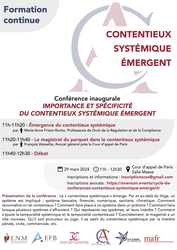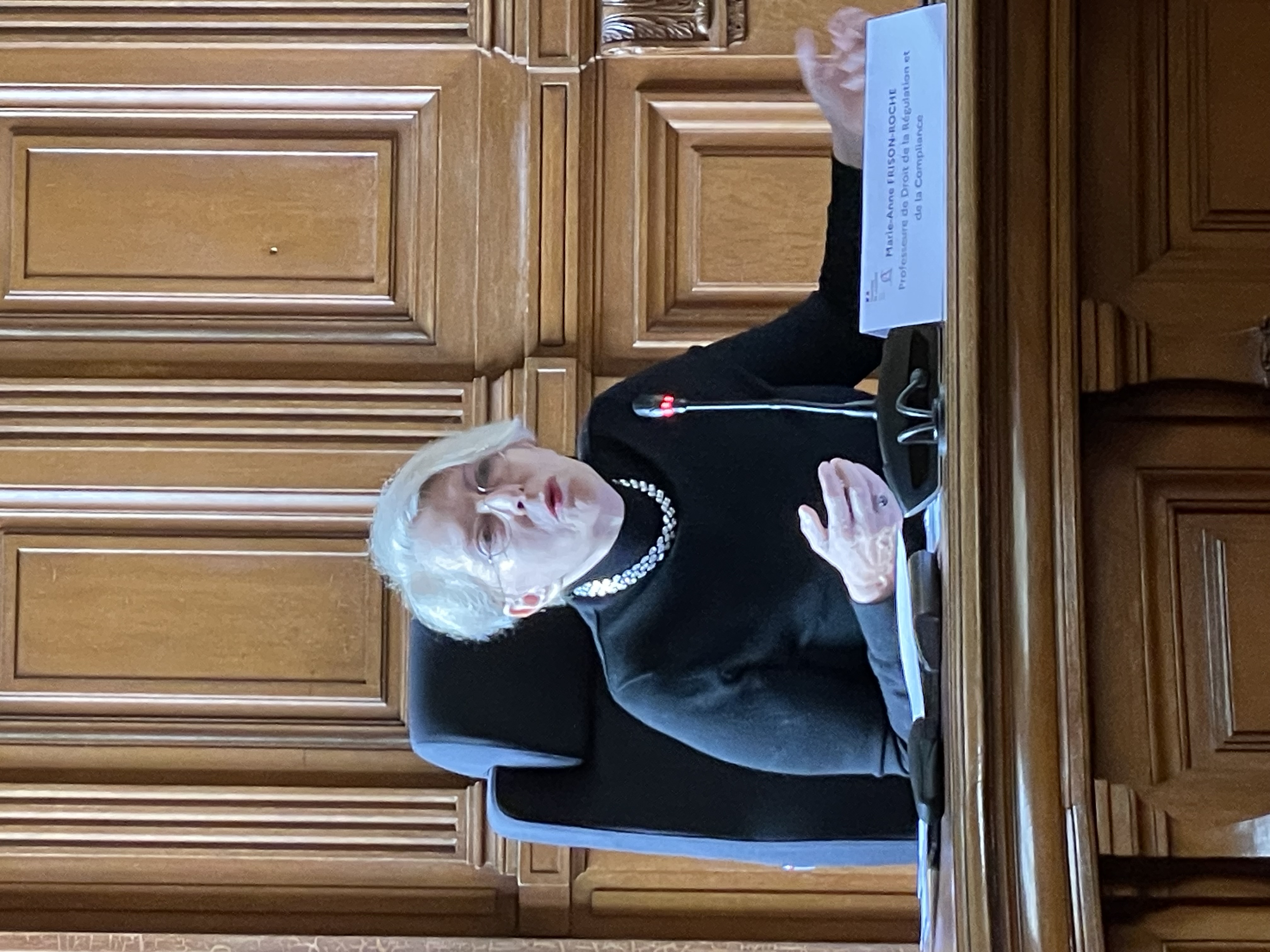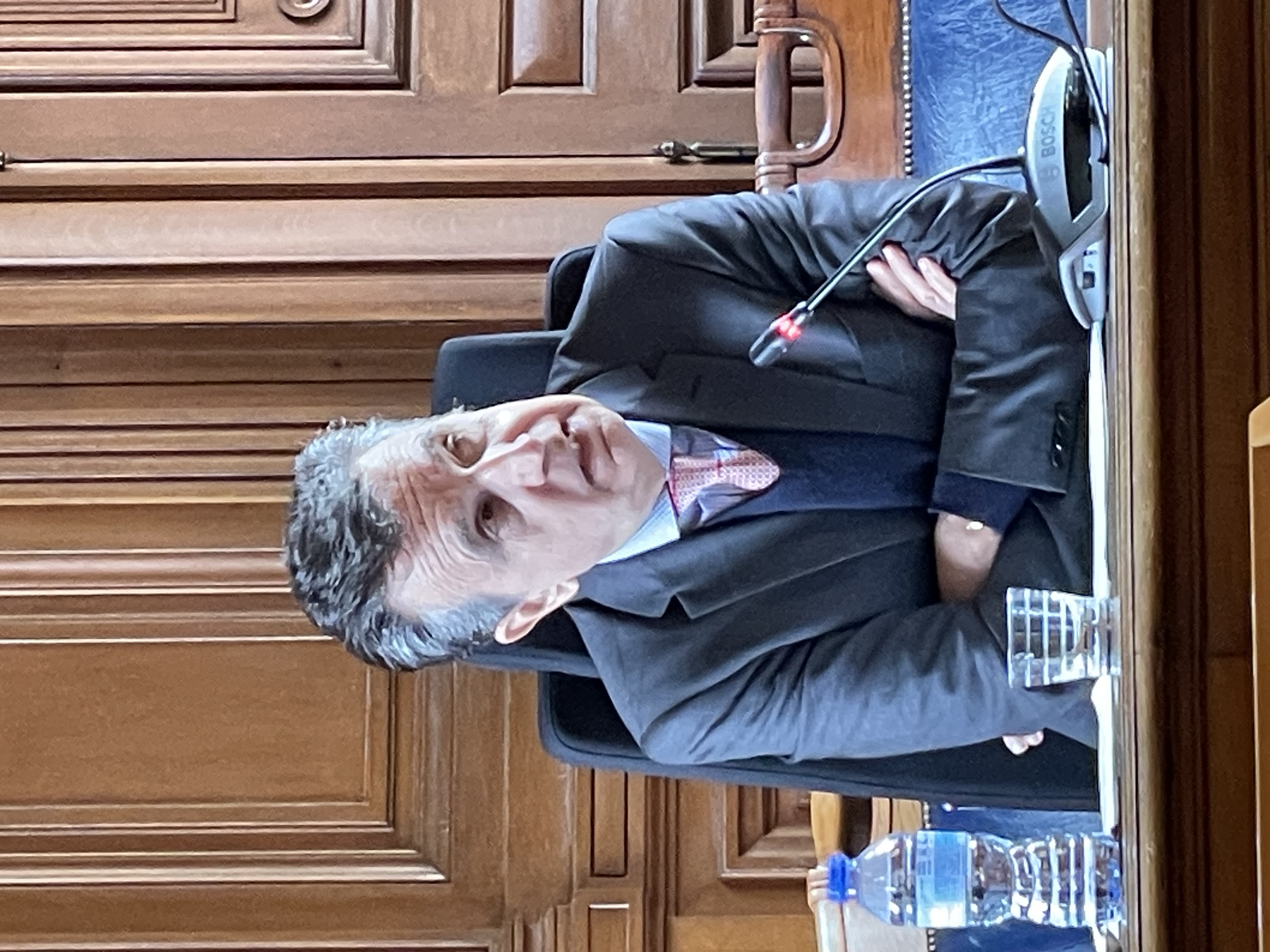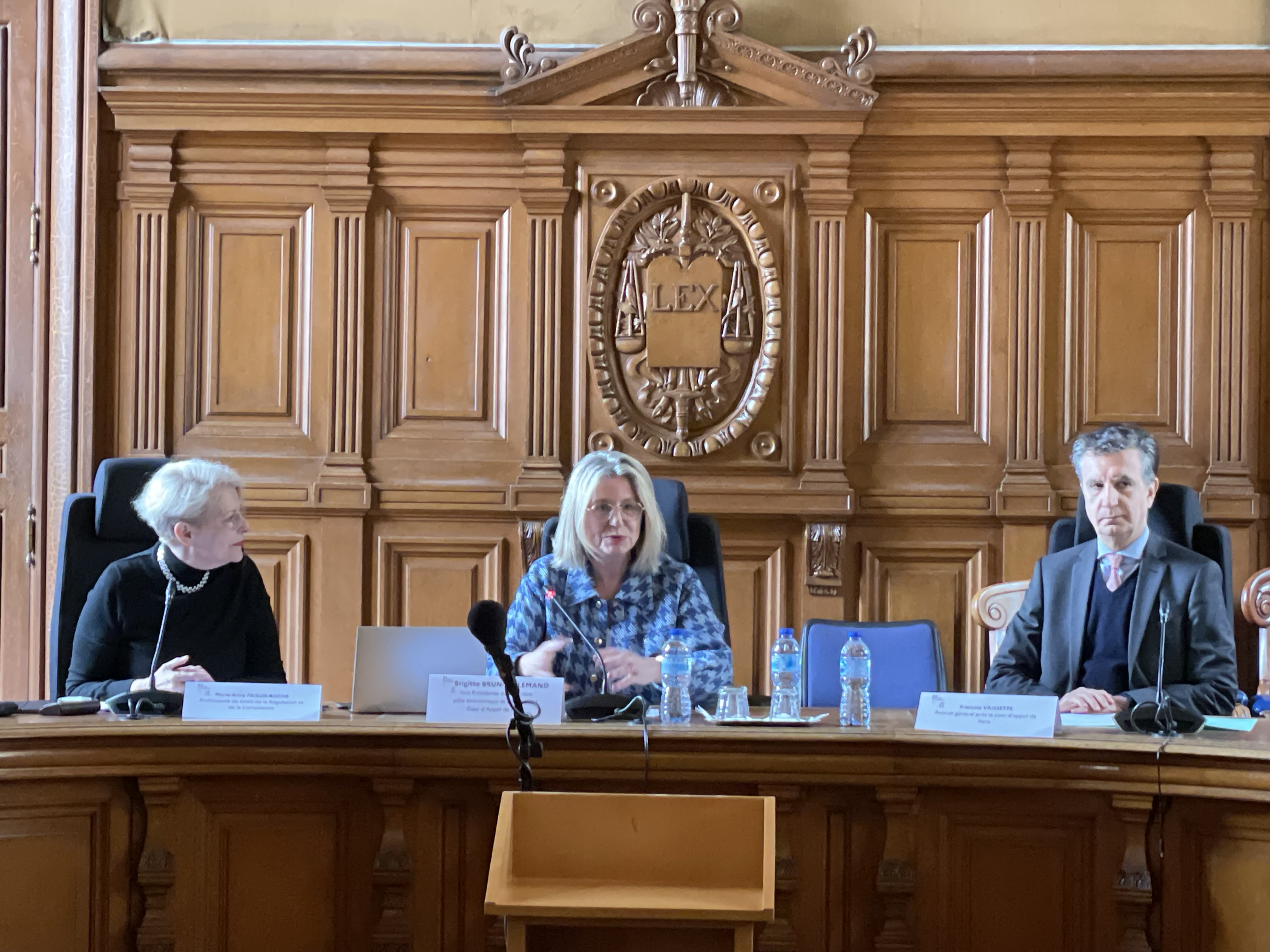
1st conference-debate of the cycle "Contentieux Systémique Émergent" ("Emerging Systemic Licigation")
🧮Importance et spécificité du Contentieux Systémique Émergent (Importance and specificity of the Emerging Systemic Litigation), in cycle of conferences-debates "Contentieux Systémique Émergent" ("Emerging Systemic Litigation")
pour lire cette présentation en français ↗️ cliquer sur le drapeau français

► Full Reference: Importance et spécificité du Contentieux Systémique Émergent (Importance and specificity of the Emerging Systemic Litigation), in cycle of conference-debates "Contentieux Systémique Émergent" ("Emerging Systemic Litigation"), organised on the initiative of the Cour d'appel de Paris (Paris Cour of Appeal), with the Cour de cassation (French Court of cassation), the Cour d'appel de Versailles (Versailles Court of Appeal), the École nationale de la magistrature - ENM (French National School for the Judiciary) and the École de formation des barreaux du ressort de la Cour d'appel de Paris - EFB (Paris Bar School), under the scientific direction of Marie-Anne Frison-Roche, March 29, 2024, 11h-12h30, Cour d'appel de Paris, Masse room
____
► Presentation of the conference-debate: The "Systemic Litigation" is emerging. Through and beyond the dispute, a system is involved: the banking, financial, digital, health and climate systems. How can such litigation be recognised? How do you make room for a system in a court of law? What can be done when several systems are in conflict? Who represents these systems and their interests? How can the temporality of systems and litigation be reconciled? In practical terms, the magistrate has a new role. Whether they are prosecutors or judges, they deal with systemic litigation in criminal, civil, commercial and other areas.
____
🎤see the detailed presentation of the first speech of 🕴️Marie-Anne Frison-Roche : L'émergence du Contentieux Systémique (The Emergence of Systemic Litigation)
____
🧮Programme of this event:
Inaugural Conference
IMPORTANCE ET SPÉCIFICITÉ DU CONTENTIEUX SYSTÉMIQUE ÉMERGENT
(IMPORTANCE AND SPECIFICITY OF THE EMERGING SYSTEMIC LITIGATION)
Cour d’appel de Paris (Paris Court of Appeal), Masse room
🕰️11h-11h20. 🎤L’émergence du contentieux systémique (The Emergence of the Systemic Litigation), by 🕴️Marie-Anne Frison-Roche, Professor of Regulatory and Compliance Law, Director if the Journal of Regulation & Compliance (JoRC)
🕰️11h20-11h40. 🎤L’office du magistrat du parquet dans le contentieux systémique (The role of the Public Prosecutor in Systemic Litigation), by 🕴️François Vaissette, Avocat général près la Cour d’appel de Paris (Advocate General at the Paris Court of Appeal)
🕰️11h40-12h30. Debate
____
🔴Registrations and information requests can be sent to: inscriptionscse@gmail.com
🔴For the attorneys, registrations have to be sent to the following address: https://evenium.events/cycle-de-conferences-contentieux-systemique-emergent/
⚠️The conference-debates are held in person only, in the Cour d’appel de Paris (Paris Court of Appeal).
____
🧮Read below a detailed presentation of this event⤵️
________
Inaugural Conference
IMPORTANCE ET SPÉCIFICITÉ DU CONTENTIEUX SYSTÉMIQUE ÉMERGENT
(IMPORTANCE AND SPECIFICITY OF THE EMERGING SYSTEMIC LITIGATION)
under the scientific direction of Marie-Anne Frison-Roche
Friday March 29, 2024
Cour d’appel de Paris (Paris Court of Appeal), Masse room
🕰️11h-11h20. 🎤L’émergence du contentieux systémique (The Emergence of the Systemic Litigation), by 🕴️Marie-Anne Frison-Roche, Professor of Regulatory and Compliance Law, Director if the Journal of Regulation & Compliance (JoRC)
- I addressed two questions:
1. the definition of systemic litigation; and what practical consequences does this have?
2. why is it emerging now, and what practical consequences does it have?
- The concept was proposed in 2021: 🕴️M.-A. Frison-Roche, 🚧The hypothesis of Systemic Cases brought before the Judge, 2021.
- Cette définition est ici concrètement développée au regard des systèmes impliqués dont les intérêts, essentiellement futurs, doivent être entendus. La distinction en Droit processuel utilisée est celle entre la partie au litige et la partie à l'instance, car il ne faut pas que des personnes puissent avoir des prétentions (ce qui est le propre d'une partie au litige) du seul fait qu'elles soient "concernées", ce qui doit, mais ne doit que, leur ouvrir l'instance.
- This definition is developed here in concrete terms with regard to the systems involved, whose interests, essentially future interests, must be heard. The distinction in General Procedural Law used is that between the party to the dispute/litigation and the party to the proceedings, because certain people must not be able to have claims (which is what a party to the dispute can have) simply because they are 'concerned', which must, but only must, open up proceedings to them.
- Emergence comes about either because new systems have appeared (digital, algorithms), or because new threats have appeared to old systems (climate), or because a political will or a social conscience has emerged in relation to an unchanged system (gender relations).
The technical and political aspects are not at all the same, and this has a major impact on procedural techniques and the role of the judge.
🌐consult the report of this speech made by Marie-Anne Frison-Roche on LinkedIn, which links to a general presentation of the event, which in turn links to the reports of each speech (in French)
🔲consult the slides that support this speech (in French)

🕰️11h20-11h40. 🎤L’office du magistrat du parquet dans le contentieux systémique (The role of the Public Prosecutor in Systemic Litigation), by 🕴️François Vaissette, Avocat général près la Cour d’appel de Paris (Advocate General at the Paris Court of Appeal)
- François Vaissette illustrated Emerging Systemic Litigation through the role and place of the Public Prosecutor.
- Referring back to what gives rise to Emerging Systemic Litigation, i.e. Compliance Law, he emphasised that the various regulations have marginalised the role of the Public Prosecutor. In fact, by entrusting administrative regulators on the one hand, and companies themselves on the other, with the task of achieving the Monumental Goals by which this new branch of Law is defined, the Public Prosecutor's Office, which remains active when behaviour is penalised, is marginalised in favour of other entities.
- But he considers that, on the one hand, the Public Prosecutor has been able to renew his role, particularly through the convention judiciaire d'intérêt public - CJIP (French Judicial Public Interest Agreement), with contractualisation enabling him to contribute in a new way to dealing effectively with what is initially a breeding ground for litigation. Moreover, taking the example of litigation concerning the criminal prohibition of minors' access to pornography offered by digital sites (the Youporn case), he emphasises that in these complex disputes, a criminal dimension frequently appears, which invites the Public Prosecutor to exercise his office.
🌐consult the report of this speech made by Marie-Anne Frison-Roche on LinkedIn, which links to a general presentation of the event, which in turn links to the reports of each speech (in French)

🕰️11h40-12h30. Debate
- These questions were hotly debated in the room, in the definition of what a "system" is and in the breakdown that was made, with everyone agreeing on the existence of this new litigation and the need to draw the practical consequences of its specific nature.
- During the discussion, it was also emphasised by several speakers that the Public Prosecutor's Office would undoubtedly increase, that there was a demand for this, due to the jurisdictional nature of Compliance📎
!footnote-3522 , the fact that the Public Prosecutor's Office is a joint party not indirectly involved, better placed than private entities that appropriate collective interests that they are not always legitimate to represent, and that it is a natural body to express an authorised opinion on the future of the systems involved.

________
🕴️M.-A. Frison-Roche (ed.), 📘Compliance Jurisdictionalisation, 2024.

comments are disabled for this article